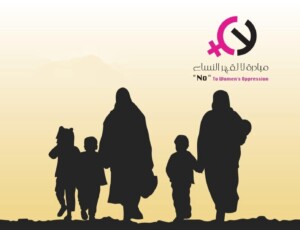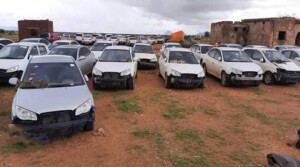Economist: Sudan govt set the wrong priorities
The continued deterioration of the economic and living conditions in Sudan are a result of failing government policies since August 2019, says economic expert Sidgi Kaballo.
More than two years after the regime of dictator Omar Al Bashir was ousted, the Sudanese are still witnessing price increases, deteriorating health services, and power and drinking water outages, while traders complain about markets empty of customers.
 Begging in Khartoum (File photo)
Begging in Khartoum (File photo)
The continued deterioration of the economic and living conditions in Sudan are a result of failing government policies since August 2019, says economic expert Sidgi Kaballo.
More than two years after the regime of dictator Omar Al Bashir was ousted, the Sudanese are still witnessing price increases, deteriorating health services, and power and drinking water outages, while traders complain about markets empty of customers.
In an interview with Radio Dabanga, broadcast on Monday, Dr Sidgi Kaballo, economist and prominent member of the Communist Party of Sudan, stated that the transitional government has set the wrong priorities since it was formed in August 2019.
According to Kaballo, the government's implementation of the conditions set by the IMF to obtain new loans before working on the improvement of internal mechanisms is a big mistake.
“The government has been more concerned with exchange rates and the budget deficit in order to satisfy the International Monetary Fund (IMF),” he said. “It would have been much better to focus on reforming the economic processes in the country, enhance the production capacity, and improve the infrastructure.
“In this way, the suffering of the Sudanese people is unnecessarily prolonged, as they have to deal with continuing increases in inflation rates.”
In July, the average inflation rate rose to 422.78 per cent, an increase of 10.03 per cent compared with June.
Solutions
Kaballo advised the government “to slow down the negotiations with the IMF after the first part is completed. “They should then first focus on internal reforms, remove exploiting elements from the economy, expand agriculture, especially the El Gezira Scheme, and structurally solve the power outages by setting up solar power plants.”
The internal reforms should focus on “the reform of the export sector, the restoration of the progressive tax law based on the type of production, and, which is most important, the recovery of the economy from the parasites*”. The government should in particular expedite the reform of the banking system “by which huge sums of money have been wasted in favour of these parasites”, and recover its monopoly on the import of petroleum.
He lauded the government’s decision to limit the import of luxury goods, and allow remittances by expatriates to enter the banking system, “which has also contributed to the stability of the Sudanese Pound”.
The economist further called on the transitional government “to benefit from grants, loans and investments from the international community in the fields of irrigation and of solar energy”.
‘Overhaul needed’
End June, former banker and civil society activist Hafiz Ismail told Radio Dabanga as well that the current government policies, including the removal of subsidies as conditioned by the IMF, are disastrous for the population.
You cannot remove subsidies and liberalise the exchange rates in a country where more than 80 per cent of the people are living below the poverty line, he said.
“People don’t enjoy three daily meals and cannot get medicines because they cannot afford it. People cannot send their kids to school. They are not economically viable now that the fuel prices increased so much” the financial analyst explained.
Like Kaballo, Ismail as well advised the government to do a complete overhaul of the economic system, to substantially reform it. "You cannot just introduce one policy of removing subsidies and expect the economy to adapt. You are killing the economy, not actually reviving it. That is a very dangerous development,” he said.
* Kaballo refers here to affiliates of the former Al Bashir regime who grew rich by setting up companies that enjoyed a great deal of privileges. The transitional government formed the Empowerment Elimination, Anti-Corruption, and Funds Recovery Committee in November 2019 with the aim to purge Sudan from the remnants of the Al Bashir regime. Though the committee has been instrumental in breaking the old regime’s grip on the political scene and state resources, it has not been able to break the corrupt trading system developed during 30 years of dictatorship.











 and then
and then